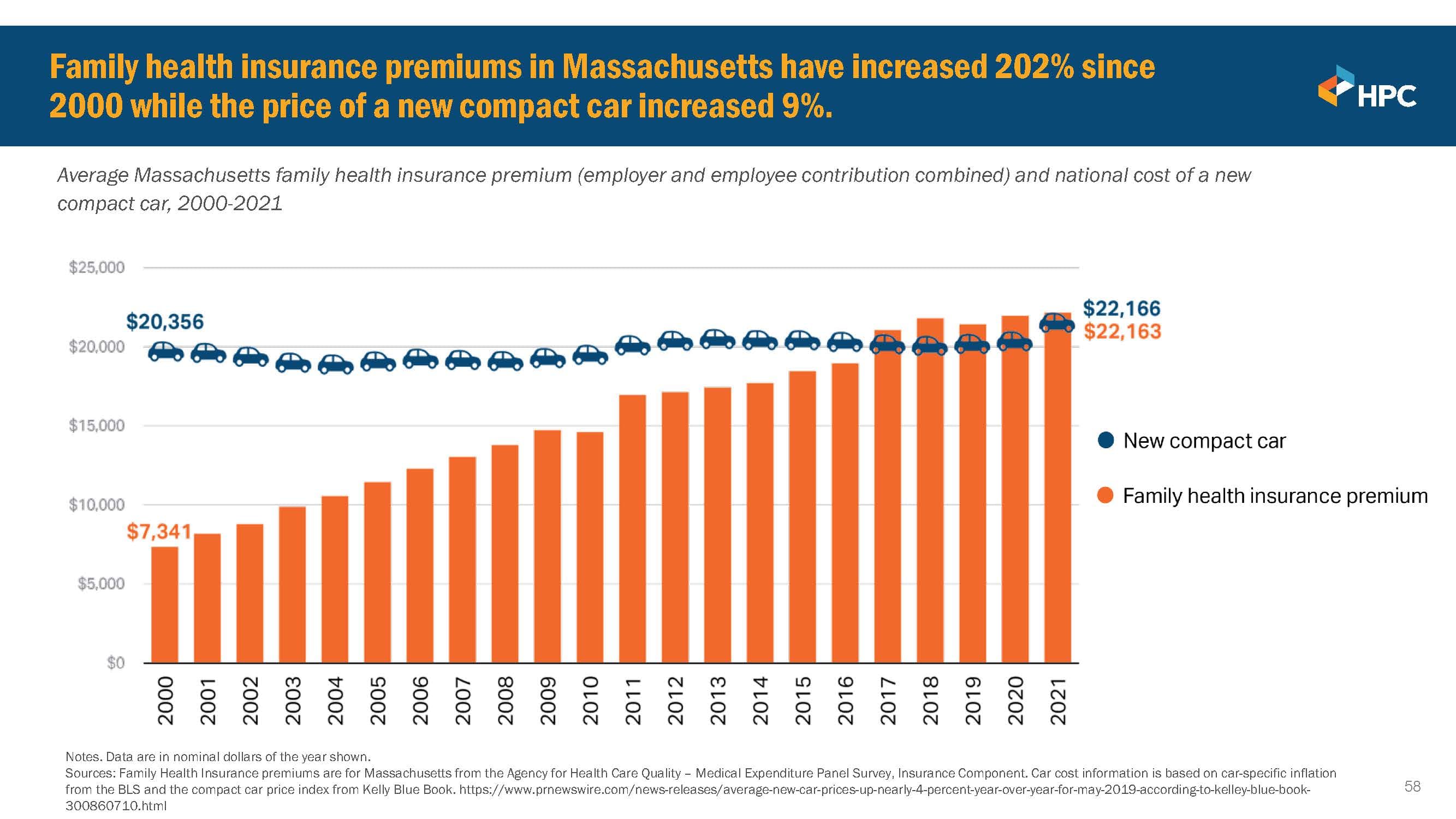Advertisement
Hospitals and insurers tangle over rising health care costs

Leaders of the state’s biggest hospital systems and insurers jousted Wednesday about how to manage the increasing costs of health care at a time when historic staffing shortages are threatening people's access to care.
Dr. Anne Klibanski, the chief executive of Mass General Brigham, told the Massachusetts Health Policy Commission that hospitals are inundated with sick patients, and severely short on staff to care for them.
“We are actually at a breaking point, and patient care is at the risk of being compromised,” she said. “And I never thought I would say that, but that actually is where we are.”
Klibanski said the current crisis is worse than the early days of the COVID pandemic because it has persisted for so long and is not improving.
She was among several health care leaders called to testify in front of the Health Policy Commission on Wednesday, in a discussion that exposed the tension between health care providers experiencing multiple pressures and policymakers seeking to make health care more affordable for patients.
The commission set a statewide target for containing the growth of health spending to 3.6% a year. Hospitals or insurers who exceed that target can be forced to adopt a cost-cutting plan.
“We are actually at a breaking point, and patient care is at the risk of being compromised. And I never thought I would say that, but that actually is where we are.”
Mass General Brigham, the state’s biggest and most expensive hospital system, is the only organization so far that has been required to follow such a plan because of its high spending. It has promised to slash spending by $127.8 million annually, in part by lowering prices.
Leaders of the Health Policy Commission have argued they need more authority to hold the health care industry accountable for spending.
But Klibanski said hospitals are grappling with higher costs driven by inflation — and many are losing money. She said they shouldn’t be penalized for expenses they can’t control.
“I really worry about what the benchmark means in this particularly fragile time. We've done a lot to make health care more affordable,” Klibanski said. “But this is a very dangerous time for taking care of patients.”
Andrew Dreyfus, chief executive of the state’s biggest health insurer, Blue Cross Blue Shield of Massachusetts, pushed back. He said he understands hospitals are facing pressures, but worries about building more cost into insurance premiums, which are already increasing.
Advertisement
“We also have to think about, what are we going to do about affordability?" he said. "Because I see a kind of looming crisis in Massachusetts.
“On the one hand, we have hospitals that are under enormous stress and pressure,” he said. “On the other hand, we have an inflationary environment and a potentially looming recession. We have businesses, especially small employers, who can't bear the increasing costs of health care.”
Data from the commission show that prices for hospital services and prescription drugs have been rising for years, and the health care industry has become more consolidated.
These trends affect the costs that consumers and businesses pay. Annual family health insurance premiums, not including out-of-pocket costs, averaged $22,163 in Massachusetts last year, the commission said. And many people are skipping medical care because of the cost.

Dr. Eric Dickson, chief executive of UMass Memorial Health, said three factors are driving up spending: administrative waste, drug prices and labor costs.
“If we don't address those root causes, we will not do anything to the cost of health care in this country or in the state,” Dickson told the commission.
Dr. Kevin Churchwell, chief executive of Boston Children’s Hospital, said his institution is struggling to accommodate the surging numbers of young patients with mental health conditions, and the increase in children with RSV and other respiratory illnesses.
“The system was not prepared for this,” he said. “The system was not staffed for it.”
Churchwell said the state needs to work with health care providers to manage the crisis.
“How do we walk, chew gum, throw a football, all at the same time? And how can the state help us do that? These are really complex issues,” he said.
Gov. Charlie Baker also addressed the commission and said the fundamentals of the health care payment system need to change. Baker called for more investment in primary care and behavioral health to help people stay healthy and avoid costly procedures and hospital stays.
Baker twice proposed sweeping legislation to shift health care dollars by spending 30% more on primary care and behavioral health — but his plan foundered in the Legislature.
“Most of the money we spend is after people get sick,” Baker told reporters. “And we aren't doing, in my view, anywhere near enough to keep them healthy in the first place.”
